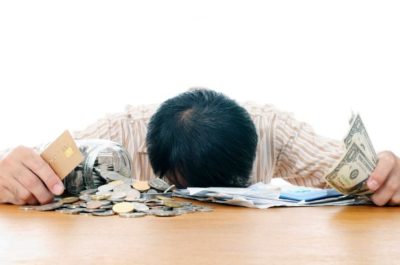
You may be like many American who have faced financial hardship due to COVID-19. Now you may explore whether you should file bankruptcy. While COVID bankruptcy statistics show that filings are down, there may be a way of bankruptcies in the coming months.
Let’s look at some misconceptions that many people have when thinking of filing for bankruptcy.
Misconception 1—Filing for bankruptcy is a tedious process
Although the process may be tedious, it doesn’t necessarily have to be the case. If you have a bankruptcy attorney, he/she can handle the paperwork while you also get legal advice. With an experienced attorney, you’re certain to have a smooth process and can expect the best outcome possible.
Misconception 2—you can only be at the risk of bankruptcy if you’re not financially savvy
It is a misconception that must end now. As we earlier highlighted, no one is immune to an adverse financial period even if they are honest, hardworking, and decent people. Anyone can be affected by financial hardship. It is not true that a particular type or class of people are more prone to bankruptcy.
Misconception 3—Bankruptcy means that you can’t access credit in the future
There is a common belief that you won’t get credit in the future after filing for bankruptcy. Of course, your credit score may decrease due to the bankruptcy. But as we shared earlier, you can secure credit in the future and build up your credit score at the same time. However, avoid an instance where the credit level rises too much.
Misconception 4—a debtor can only file for bankruptcy once.
This is false. Even though the laws that guide bankruptcy were stricter in 2005, individuals are still allowed to file for bankruptcy multiple times. However, it depends on the type of bankruptcy and the time on filing the bankruptcy. According to the bankruptcy law, you’re allowed to file for bankruptcy every 2 years if you’re filing for a chapter 13 discharge, and every eight years if you’re filing for a Chapter 7 bankruptcy discharge.
Misconception 5—You will still be harassed by creditors
It’s impossible to file for bankruptcy and still be harassed by creditors. Once you file for a bankruptcy discharge, the court will notify your creditors that you’ve filed for bankruptcy, and they should back-off from harassing you for your failure to pay. This way, you’re protected from any lawsuit from a creditor, neither do they have the right to ask you for the money in any way.
Misconception 6—You can exclude some creditors from your bankruptcy filing If you’re compelled to repay what you owe them
Under bankruptcy, it’s not possible to exclude creditors so that you can pay them later. The bankruptcy code prohibits you from repaying them, even if you deeply want to repay them after getting back on your feet.
What should I do?
What you should do depends on the situation at hand. To help you understand your options, you may want to check out a free Chapter 7 means test calculator and a Chapter 13 repayment plan calculator. These calculators can help you determine if you qualify for a type of bankruptcy, help you understand the pros and cons, and estimate what you should pay.
Aside from knowing the pros and cons of debt settlement, you should also realize that there are also alternatives to bankruptcy such as debt management, debt settlement and debt payoff planning. Debt settlement companies have had a bad reputation because years ago debt settlement companies would take funds and not settle debt. This is why you may want to check sources (ex: National Debt Relief reddit) that have reviews or group reviews of the different options.
For debt payoff planning, you may want to consider a free debt payoff app that can help you understand how to prioritize debts with either the snowball method, snowball or avalanche method.


